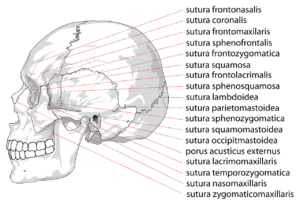When it comes to health and wellness, we often focus on diet, exercise, and lifestyle factors. However, there’s a lesser-known but incredibly significant aspect of our health that many people overlook: the alignment of our teeth and how they fit together, known as occlusion. Surprisingly, problems with occlusion can have a profound impact on our postural health. In this article, we’ll explore the intriguing link between dental occlusion and posture, drawing insights from experts like Dr. Steven Lin.
The Basics of Dental Occlusion
Dental occlusion refers to the alignment and contact between your upper and lower teeth when your jaw is closed. It’s much more than just how your smile looks; it plays a crucial role in various aspects of your oral and overall health. Proper occlusion ensures efficient chewing, minimizes the risk of tooth wear and damage, and even affects your ability to speak clearly.
Understanding Postural Faults
Postural health is essential for overall well-being. Good posture not only promotes confidence but also helps prevent musculoskeletal problems, such as back pain, neck pain, and headaches. Our bodies are interconnected systems, and one seemingly unrelated issue can have a cascading effect on other aspects of our health. This is where dental occlusion comes into play.
The Dental-Postural Connection
- The Temporomandibular Joint (TMJ) Connection: The temporomandibular joint (TMJ) is the hinge connecting your jaw to your skull. Problems with dental occlusion, such as a misaligned bite or teeth grinding (bruxism), can lead to TMJ disorders. When your TMJ isn’t functioning properly, it can trigger muscle tension and pain in the head, neck, and shoulders. These discomforts can, in turn, lead to postural adjustments as your body tries to compensate for the pain.
- Breathing and Tongue Posture: Dental occlusion also influences your breathing patterns. A narrow upper palate or misaligned teeth can affect the position of your tongue and airway. Improper tongue posture, such as tongue thrusting, can contribute to mouth breathing, which may result in forward head posture and changes in neck alignment as the body tries to optimize airflow.
Imbalances in the jaw can cause muscle imbalances throughout the body. Addressing these dental issues can help improve posture and alleviate associated discomfort.

Dr. Steven Lin, a respected dentist and author of “The Dental Diet,” has extensively studied the relationship between oral health and overall well-being. He emphasizes the importance of proper dental occlusion for not just oral health but also for the entire body.
Dr. Lin suggests that a well-aligned bite promotes proper tongue posture and nasal breathing, both of which play a vital role in overall health. He also points out that the nutrients we receive from a balanced diet are essential for maintaining healthy teeth and jaws, which, in turn, contribute to better posture.
Vagus Nerve & Oral Health:
The vagus nerve, crucial for regulating bodily functions, is intricately linked to oral and gut health. Dysfunction in the mouth or jaw can impact the vagus nerve, affecting saliva production, swallowing, digestion, gut-brain connection, and even respiratory function.
Here’s a brief glimpse into how the vagus nerve is intertwined with your mouth and what happens when oral health falters:
Saliva Production:
The vagus nerve oversees saliva production, crucial for oral health. Saliva cleanses your mouth, neutralizes acids, and combats bacteria. When vagus nerve function declines, it can result in dry mouth, raising the risk of dental issues like cavities and gum disease.
Swallowing:
Coordinating the swallowing process, the vagus nerve ensures that food and liquids don’t linger in your mouth, preventing potential dental problems.
Gag Reflex:
The vagus nerve manages your gag reflex, a vital airway protection mechanism. An overactive gag reflex can complicate dental procedures.
VAGUS NERVE AND JAW ALIGNMENT/TEETH POSITION
Beyond oral health, the vagus nerve influences jaw alignment, teeth positioning, and overall well-being:
Digestion:
The vagus nerve is a key player in digestion, regulating organs like the esophagus, stomach, and intestines. Effective digestion relies on coordinated efforts, and poor jaw alignment or teeth positioning can disrupt this process by hindering proper chewing and food breakdown.
Gut-Brain Connection:
Forming a direct bridge between the gut and the brain (the gut-brain axis), the vagus nerve is pivotal for digestion, mood, and overall well-being. Oral and dental issues that impede comfortable eating indirectly affect the gut-brain axis through vagal dysfunction.
Respiratory Function:
Responsible for controlling your breathing rate and rhythm, the vagus nerve is deeply involved in respiratory function. Breathing problems linked to issues like sleep apnea or mouth breathing (due to jaw or dental issues) can influence vagal activity and, consequently, your overall health.
The vagus nerve is crucial for systemic health, linking oral well-being to broader health. It regulates inflammation, influencing cardiovascular health, and plays a role in mood and stress regulation. Poor oral health can trigger these pathways, impacting overall wellness.
Jaw and tongue position
The tongue and the jaw also play essential roles in health, especially when it comes to breathing and overall well-being. Let’s explore how these two components can impact health and breathing:
Tongue Position and Breathing:
Airway Obstruction:
The position of your tongue can obstruct your airway if it’s too far back or falls backward during sleep, contributing to issues like sleep apnea.
Mouth vs. Nose Breathing:
Proper tongue posture encourages nasal breathing, which offers various health benefits, including filtering, humidifying, and warming incoming air, as well as supporting lung function and blood circulation. Mouth breathing, on the other hand, can lead to dry mouth and increased infection risk.
Tongue Tie (Ankyloglossia):
Tongue tie is a condition where the lingual frenulum (the skin strip beneath the tongue) is too short, limiting tongue movement. This condition can affect breastfeeding in infants and contribute to speech and breathing difficulties in children and adults.
Jaw Position and Breathing:
Oral Development:
Proper jaw development is crucial for a healthy airway. A narrow or retruded jaw can lead to a crowded mouth and restricted airflow, potentially causing breathing difficulties.
Malocclusion and Orthodontics:
Misalignment of the upper and lower teeth (malocclusion) can result from jaw misalignment and affect not only your smile’s aesthetics but also your breathing and overall health. Orthodontic treatment can address these issues.
Jaw Clenching and Teeth Grinding:
Chronic jaw clenching or teeth grinding can lead to discomfort and sleep disruption due to stress on the jaw muscles and temporomandibular joint (TMJ).
Impact on Breathing Disorders:
Abnormal jaw development can exacerbate or contribute to breathing disorders like sleep apnea. A well-developed jaw with adequate space for the tongue and airway structures supports healthy breathing during sleep.
Conclusion
Our bodies are intricate systems where every part is interconnected. The relationship between dental occlusion and postural health may not be immediately obvious, but it is undeniably significant. Problems with how your teeth fit together can lead to postural faults, which, over time, may cause discomfort and health issues.
If you suspect that your dental occlusion may be contributing to postural problems or if you’re experiencing TMJ issues, it’s crucial to consult both a biological dentist and a Chek practitioner which are specializing in posture and musculoskeletal health. Addressing dental occlusion issues can lead to improved posture, reduced pain, and enhanced overall well-being, highlighting the importance of looking beyond the surface when it comes to health and wellness.

